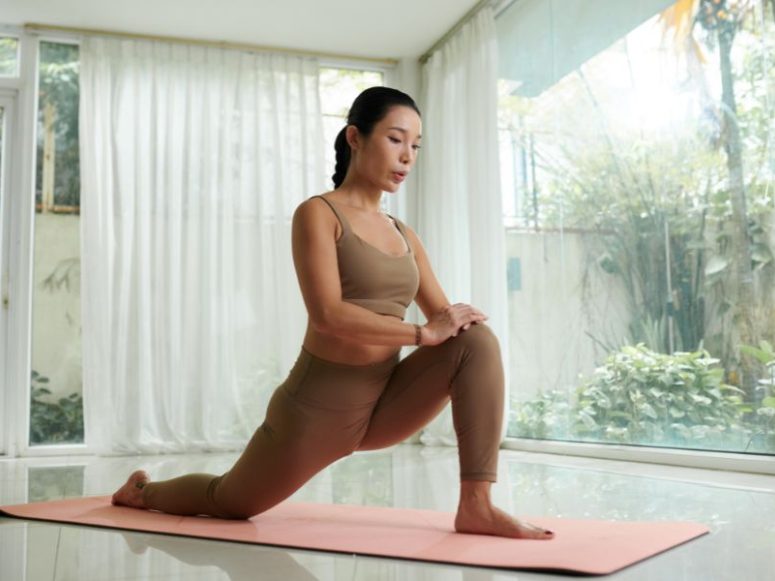- Boosts your energy and improves mood, helping you tackle daily challenges with renewed vigor.
- Strengthens your body from the inside out, protecting against illness and chronic disease.
- Enhances mental clarity and reduces stress, building a more resilient and focused mind.
The Scientific Foundation: How Fitness Transforms Your Body
Physical fitness is far more than just what you see in the mirror. It’s a powerful tool that remodels your body at a cellular level, creating a stronger, more efficient version of you. The benefits are profound and begin to manifest the moment you start moving.
Cardiovascular Health: The Heart of the Matter
Your heart is a muscle, and like any other muscle, it needs to be worked to stay strong. Aerobic exercises like brisk walking, jogging, or cycling strengthen your cardiovascular system. They increase the efficiency of your heart and lungs, allowing them to pump blood more effectively. This reduces your risk of heart disease, lowers blood pressure, and improves overall circulation, ensuring every cell in your body gets the oxygen it needs.
Building Strength and Bone Density
Weight-bearing exercises, such as lifting weights, bodyweight training, or even hiking, are essential for building muscle and bone mass. A strong skeletal system is crucial for stability and posture, and it helps prevent conditions like osteoporosis later in life. Strong muscles also support joints, reducing the risk of injury and making everyday tasks feel effortless.
Weight Management: Finding Your Balance
While diet plays a key role, physical fitness is a critical component of healthy weight management. Exercise burns calories and increases your metabolic rate, which helps you burn more calories even when you are at rest. This combination is essential for losing unwanted fat and building lean muscle mass, which further boosts your metabolism.
The Mental Edge: A Fitter Body, A Sharper Mind
The benefits of physical fitness aren't limited to your body. Regular exercise has a profound and positive impact on your mental and emotional well-being. It is a powerful antidote to stress, anxiety, and a wide range of mental health challenges.
Stress and Anxiety Reduction
When you exercise, your body releases endorphins, often called "feel-good" hormones. These natural chemicals act as a powerful mood booster, alleviating feelings of stress and anxiety. Physical activity also provides a healthy outlet for pent-up energy, allowing you to mentally decompress and step away from daily worries.
Enhanced Cognitive Function
Physical fitness improves blood flow to the brain, which in turn enhances cognitive function. Studies show that regular exercise can improve memory, increase focus, and sharpen problem-solving skills. It can even stimulate the growth of new brain cells, making your mind more agile and resilient as you age.
Improved Sleep Quality
Physical activity helps regulate your sleep patterns, leading to deeper, more restorative sleep. When your body is physically tired from a workout, it is more primed for rest. Better sleep is a cornerstone of good health, impacting everything from your mood to your immune system and overall energy levels.
Getting Started: Simple Steps to Success
The path to a healthier life doesn't require a marathon. It's about starting small and building consistent habits.
Find What You Love
The key to long-term success is to find an activity you genuinely enjoy. If you hate running, don't run. Try dancing, swimming, cycling, or playing a team sport. When fitness is fun, it doesn't feel like a chore.
Start Small and Be Consistent
Begin with manageable goals. Aim for 20-30 minutes of activity three times a week. Consistency is far more important than intensity in the beginning. As you feel stronger, you can gradually increase the duration and frequency of your workouts.
Set Realistic Goals
Set goals that are specific, measurable, achievable, relevant, and time-bound (SMART). Instead of "I want to get fit," try "I will walk for 30 minutes, five days a week for the next month." This makes your journey clear and trackable.
Beyond the Gym: Making Every Moment Count
Physical fitness isn’t confined to a specific place or time. You can integrate more activity into your daily life with small, smart choices.
The Power of Incidental Movement
Take the stairs instead of the elevator. Park at the far end of the parking lot to get a few extra steps in. Get up from your desk every hour to stretch and move. These small, consistent actions add up to big health benefits over time.
Fueling Your Body
What you eat is just as important as how you move. A balanced diet of lean proteins, whole grains, fruits, and vegetables provides the energy your body needs to perform and recover. Proper hydration is also crucial; be sure to drink plenty of water throughout the day.
Physical Fitness for Every Age
The benefits of physical fitness are universal, but your approach should evolve with your age.
For Children and Teens
Fitness at a young age is about building a foundation for a healthy life. Encourage play, sports, and any activity that promotes movement and skill development.
For Adults
Adults should focus on a balance of cardiovascular exercise, strength training, and flexibility to maintain energy, manage weight, and prevent age-related health issues.
For Seniors
Seniors benefit immensely from low-impact exercises that improve balance, flexibility, and muscle strength. Walking, swimming, and yoga are excellent choices to maintain independence and quality of life.
Conclusion: Your Journey Starts Now
Physical fitness is not a destination but a lifelong journey. It is a commitment to yourself—a powerful way to invest in your physical and mental well-being. By making small, consistent changes, you can unlock a healthier, happier, and more vibrant you. Start today, and discover the incredible power of physical fitness.








